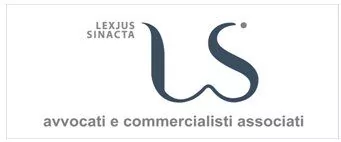On 19th July 2012, the Court of Justice of the European Union ruled that undertakings selling airline tickets should not automatically include cancellation insurance in their prices but should rather make it available on an "opt-in" basis.1
The reference for a preliminary ruling arose in proceedings between e-bookers.com Deutschland GmbH, an undertaking which sells airline tickets through an online portal, and Bundesverband der Verbraucherzentralen und Verbraucherverbände ("BVV"), a German consumer protection group.
BVV had brought an action against e-bookers.com for its practice of automatically adding flight cancellation insurance to the clients' reservation during the online booking process unless they opt out.
The payment of the total cost of the ticket was made by the client to e-bookers.com, which in turn paid the flight costs to the air carrier concerned and the insurance premium to an insurance company (a legally and economically distinct undertaking).
According to BVV, this practice violated Article 23.1 of Regulation 1008/2008,2 which unequivocally states that "optional price supplements shall be communicated in a clear, transparent and unambiguous way at the start of any booking process and their acceptance by the customer shall be on an opt-in basis".
In its reference to the Court of Justice, the Oberlandesgericht of Cologne asked whether the notion of "optional price supplements" should be interpreted to include the cost of services (such as flight cancellation insurance) provided by a party other than the air carrier and charged to the customer by the online travel agency.
e-bookers.com observed that nothing in the wording of Article 23.1 of Regulation 1008/2008 justifies the application of this provision to the costs of services which are not part of the air service contract and are not provided by air carriers.
Adopting a rather broader interpretation of Article 23.1, BVV argued that the question referred by the Court of Cologne should be answered in the affirmative. In particular, BVV stressed the fact that the purpose underpinning Regulation 1008/2008 is to enhance consumer protection, enabling customers to compare effectively the prices of different airline tickets and suggested that Article 23.1 should therefore apply not only to air carriers but also to agents, intermediaries, third parties and to the services provided by them in connection with the sale of tickets.
This view was shared by the Spanish, Italian, Austrian and Finnish Governments and by the European Commission, which submitted their own observations in support of BVV's case.
In its Opinion, delivered on 1st March 2012, Advocate General Mazák observed that it would be at odds with the purpose of Article 23.1 if the protection of customers "were to depend on whether the optional service and price offered during the process of booking a flight originate from an airline company or from a legally distinct company, or on whether or not that service strictly forms part of an air services contract".3
The Court of Justice of the EU, drawing largely on the Opinion of the Advocate General, held that flight cancellation insurance was an "optional price supplement" which was neither compulsory nor necessary for the booking of a flight and therefore fell within the scope of Article 23.1 of Regulation 1008/2008. The Court added that in order to allow the customer to make an informed decision, price supplements must be communicated in a clear, transparent and unambiguous way at the start of the booking process and their acceptance by the customer must be on an "opt-in" basis.
In its Judgment, the Court emphasized that according to its own settled case-law,4 in interpreting a provision of EU Law, it is necessary to consider not only its wording, but also the context in which it occurs and the objectives of that particular piece of legislation.
According to the Court, a broad interpretation of Regulation 1008/2008 is consonant not only with the intentions of the lawmakers, but also with Article 22 of Directive 2011/83/EU5, which states that before the consumer can be bound by an offer, the trader must seek his express consent (on an "opt-in" basis) to any extra payment in addition to the consideration agreed upon for the trader's main contractual obligation.
In the ruling handed down by the Court it is easy to recognize the influence of the recent reforms which have made consumer protection rules in the Union much more stringent and of Article 38 of the Charter of Fundamental Rights of EU, which states, rather laconically, that "Union policies shall ensure a high level of consumer protection".
Naturally, this Judgment lays heavier responsibilities on the shoulders of travel agencies and airlines, which will need to pay more attention to what is automatically included in the price of airline tickets; in future, any charge that could be construed as "optional" should therefore be accepted by the customer on an "opt-in" basis rather than by default.
Footnotes
1 Case C- 112/11, 1st March 2012, ebookers.com Deutschland GmbH v. Bundesverband der Verbraucherzentralen und Verbraucherverbände (BVV), [2012] ECR 0000.
2 Regulation 1008/2008 of the European Parliament and of the Council, 24th September 2008, on common rules for the operation of air services in the Community, [2008] OJ L293/3.
3 Case C- 112/11, 1st March 2012, ebookers.com v. BVV, Opinion of Mr Advocate General Mazák, [2012] ECR 0000, para. 39
4 Case 292/82 Merck [1983] ECR 3781, para. 12; Case C-34/05 Schouten [2007] ECR I-1687; et al.
5 Directive 2011/83/EU of the European Parliament and of the Council, 25th October 2011, on consumer rights, amending Council Directive 93/13/EEC and Directive 1999/44/EC of the European Parliament and of the Council and repealing Council Directive 85/577/EEC and Directive 97/7/EC of the European Parliament and of the Council, [2011] OJ L304/64.
The content of this article is intended to provide a general guide to the subject matter. Specialist advice should be sought about your specific circumstances.


